Labor Party’s ‘mean girls’ ostracised Kimberley Kitching
The ALP Senator endured a pattern of hostility, isolation and cruel treatment by senior Labor colleagues that put her under stress for a long time before she died.

Labor senator Kimberley Kitching was on her way to yoga class when her phone rang.
It was a journalist alerting her to a story on The Sydney Morning Herald website where opposition foreign affairs spokeswoman Penny Wong was calling for tough laws to target foreign human rights abusers.
Kitching read the story and felt a wave of shock. She had been imploring Wong to support these very laws for a year and a half, to no avail.
Kitching even had her own private member’s bill ready to go that Wong would not permit her to table. Even in the usual cut and thrust of politics, this about-face by Wong was breathtaking.
It fitted a pattern of hostility by senior Labor Party members toward the late senator that put her under strain for a long time before she died.
The Australian can reveal Kitching was even hauled into a closed-door meeting with Labor’s Deputy Leader of the Opposition in the Senate, Kristina Keneally, where she was wrongly accused of disloyalty and siding with Liberal minister Linda Reynolds over the Brittany Higgins allegations.
The unravelling of Kitching’s relationship with senior Labor figures began in late 2018 when, accompanied by then Labor leader Bill Shorten and fellow Labor MP Michael Danby, she first met with Wong to mount the case for laws that would allow Australia to sanction individual human rights abusers instead of entire countries.
The Magnitsky Act had been passed by the US congress in 2012 after Russian tax lawyer Sergei Magnitsky was arrested, tortured and killed for the “crime” of exposing corrupt Russian officials.
The new laws meant Russian individuals responsible for his death could face personal sanctions – instead of the US having to sanction all of Russia, which would never have happened over one person’s death.
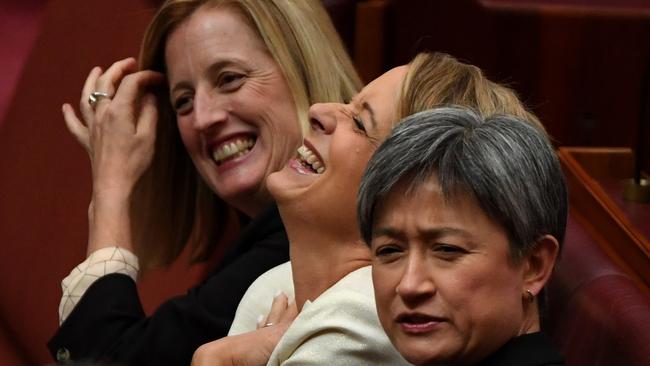
Kitching, Danby and Shorten made their pitch strongly to Labor’s leading foreign policy brain but Wong was unmoved.
According to Kitching’s recollection of the conversation, Wong allegedly said: “Over my dead body will we have Magnitsky.”
Kitching recounted the conversation during a February 2022 interview with The Australian. She also relayed Wong’s “over my dead body” comment to other colleagues as well.
Danby confirms Wong was against the act. “At that stage, she firmly refused to support it,” he said. “Kimberley and I were chagrined because support for this international human rights law seemed obvious to us and had been passed in many countries.”
The meeting turned sour.
“She (Wong) stormed off and Bill just sighed and said, ‘Look we’ll do it when we’re in government,’ ” Kitching said in the interview.
Kitching spoke to The Australian in February 2022 for an investigative article about Labor’s policy approach to China.
It turned out to be one of her final interviews.
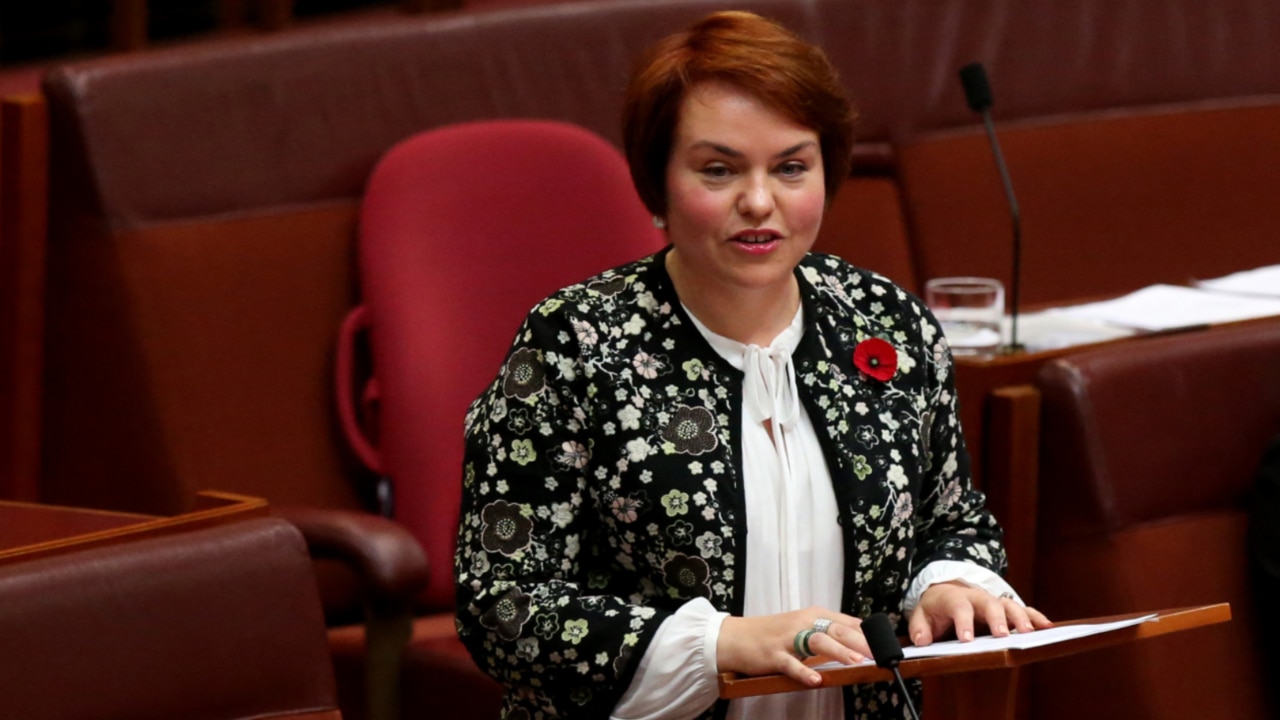
She volunteered for inclusion in the article detail about the frustration she faced internally when advocating for the Magnitsky-style laws. She said the act was seen as too provocative towards China when hostilities in the Sino-Australian relationship were escalating.
“One of the things about it is people were worried it was going to upset China,” Kitching said.
“I feel if we don’t have strategic competition and don’t hold true to our values, we are going to lose sovereignty. It doesn’t matter where human rights abuses occur … We were the fourth of the five eyes to have it (the Magnitsky Act).”
In another conversation after their first meeting, Kitching claimed she said to Wong: “Listen, it will be passed unanimously, which it was, because no one wants to be on the side of a human rights violator.
“She (Wong) didn’t like it.”
Wong declined to respond to questions for this article on her conversations with Kitching or her about-face on the Magnitsky Act.
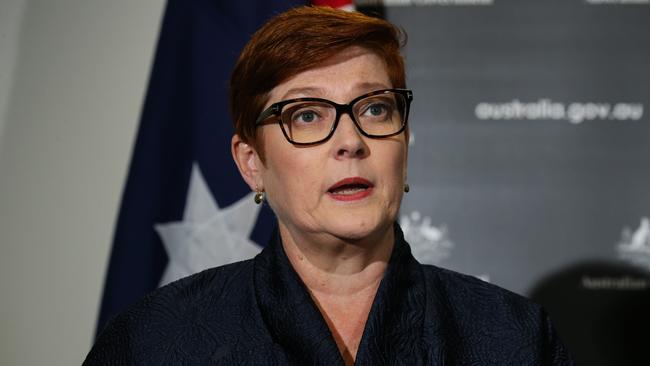
Coalition partnership
When Kitching continued to hit a brick wall with her Labor colleagues, she formed a partnership with chair of the parliamentary joint committee on intelligence and security James Paterson, then a backbencher. The pair worked with Foreign Minister Marise Payne’s chief of staff, Justin Bassi.
Initially, Payne was open to the legislation but soon became very enthusiastic about it, playing a critical role in persuading her cabinet colleagues to support the new sanctions regime.
At times, Bassi and Kitching would have multiple phone calls a day about the act. They decided the best way to get Labor on board with the legislation, which would need bipartisan support, would be as a result of recommendations from a bilateral committee.
Payne sent a reference for the Magnitsky Act to be considered to the human rights sub-committee, chaired by Kevin Andrews, of the over-arching committee on foreign affairs, defence and trade in December 2019.
It meant there would be hearings into the proposed legislation.
This sparked in Kitching an idea that delighted her. It was a plan she workshopped with Danby over coffee at her favourite hangout, The Lavender Cafe, in Melbourne’s upmarket suburb of Albert Park.
“She believed if Amal Clooney testified in favour of Magnitsky, Wong would support it,” Danby recalls with a chuckle.
“She thought they won’t be able to stop it if we get these two, (Geoffrey) Robertson and Clooney, to testify.”
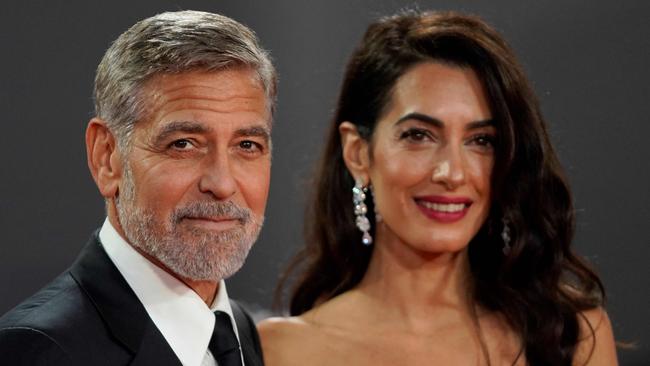
Star power
Over the following months, Kitching connected with international human rights lawyer Robertson, global A-lister Clooney and Bill Browder, head of the Global Magnitsky Justice campaign.
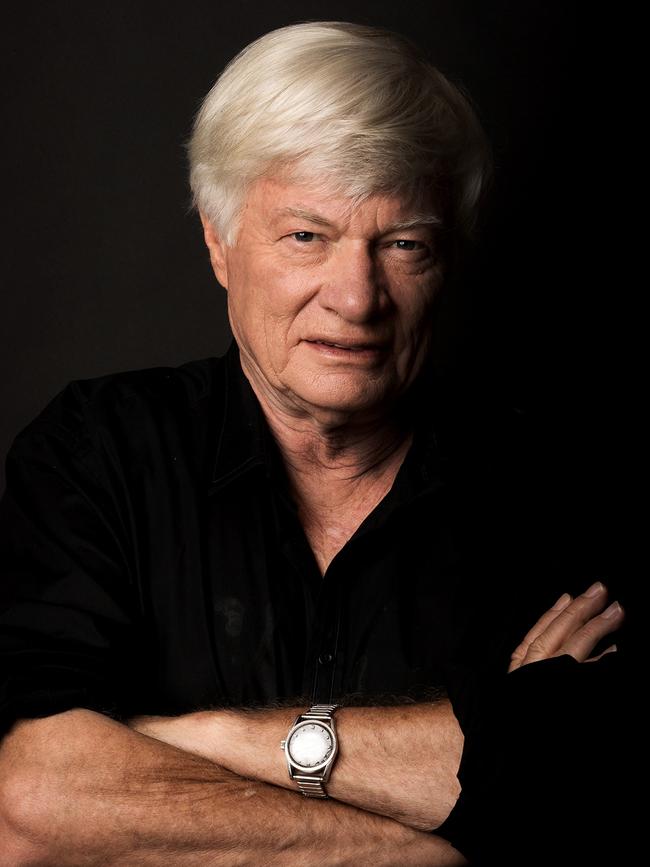
Through perseverance and the force of her personality, Kitching convinced them all to agree to testify at the parliamentary hearings.
“Kimberley had actually organised for them to fly out here but then Covid restrictions prevented them from coming and they zoomed into the committee,” Danby said.
Clooney, in a glamorous black dress, beamed into an Australian Senate inquiry via video link in May 2020 as Covid-19 was ravaging the globe, stunning the politicians as she implored them to introduce the new laws.
Her star-power at a mundane foreign affairs hearing meant the niche issue of new sanctions legislation attracted headlines.
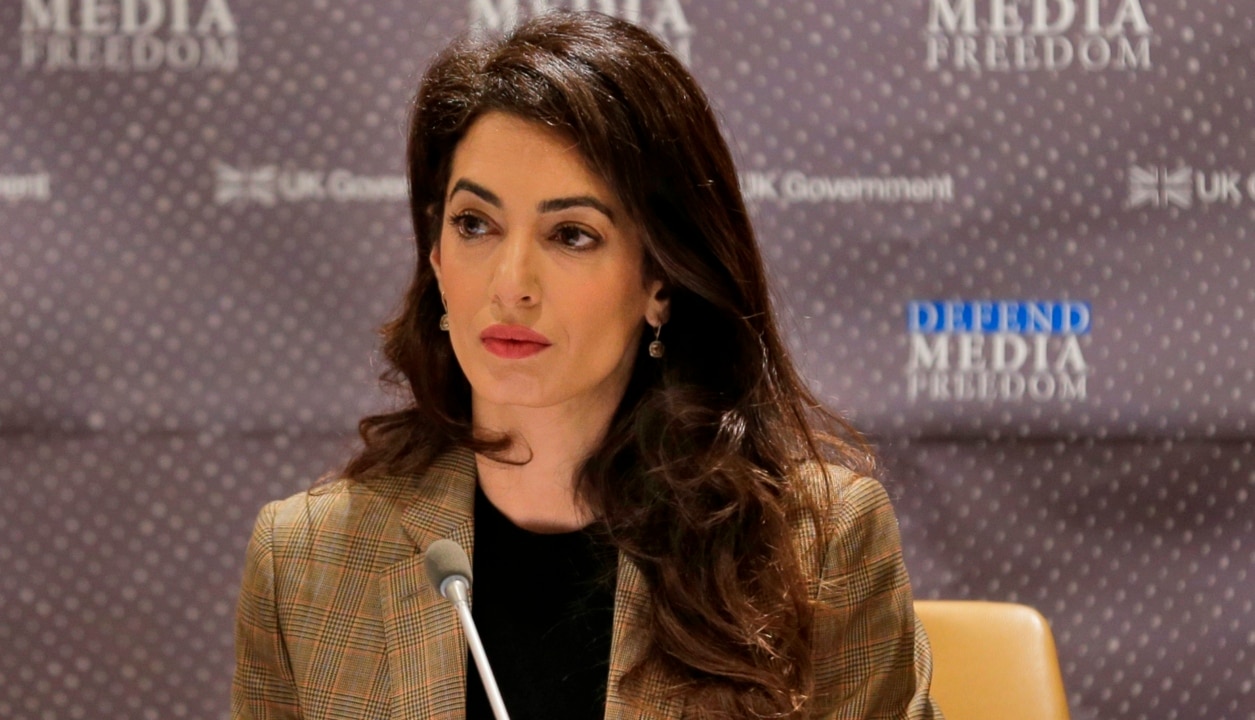
Just two months later, Wong gave the interview to the SMH where she called for Magnitsky laws to be introduced.
The first line of that July 2020 article read: “Labor’s foreign affairs spokeswoman Penny Wong is calling for Australia to introduce its own Magnitsky Act to target human rights abusers after the United Kingdom unveiled its much-anticipated laws.”
Kitching was furious. “When I saw the article, that was the first I knew about it,” she told The Australian. “The story went up quite late in the day. I was going to yoga and I was so angry she hadn’t told me or even sent a text saying ‘Oh by the way’ … It took me half the yoga class to relax.”
The Morrison government interpreted the move as Wong realising which direction Payne was heading and trying to front-run it.
Kitching shared a similar view.
“At that point, Penny realised she was going to be left behind and tabled my bill,” Kitching said.
“She didn’t want to be seen in a bad light.”
Leaked text messages
One dramatic incident isolated Kitching from Labor’s inner circle. It shook and devastated her.
Kitching sat on the Senate finance public administration committee that had received a submission containing an allegation that there had been an incident between two staffers.
It subsequently became clear this was related to Higgins’s alleged rape.
“Kitching could see someone’s sexual assault experience was about to be weaponised,” a friend recalled.
Disturbed by the prospect, she gave a vague warning to former defence minister Reynolds about it. They had a verbal conversation followed by a text exchange.
Kitching’s friends believe she acted in good faith and was deeply uncomfortable – at least initially – with politicisation of an alleged rape.
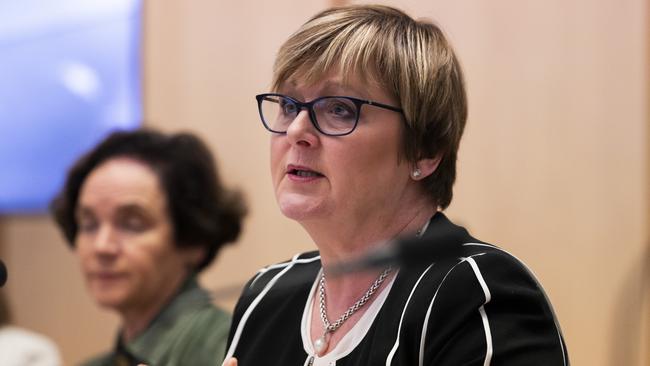
But the sympathy Kitching offered Reynolds backfired.
The matter blew up during an estimates hearing in June 2021.
Under questioning from Labor senators Wong and Katy Gallagher, Reynolds publicly accused the ALP of hounding her to the point she ended up in hospital over the Higgins matter.
Gallagher responded by saying: “You just alleged that we put you in hospital, that I put you in hospital.”
A heated exchange continued for some time before Reynolds levelled accusations at them of deliberately coming for her in a political attack.
“I know where this started,” Reynolds said.
Wong said: “I beg your pardon? Chair, she’s just made an imputation on the Hansard.
“We’d like to understand what she’s just asserted.”
Both Wong and Gallagher questioned Reynolds over what she meant when she said “I know where this started”.
Reynolds replied: “I really don’t think we should be doing this here, but if you want me to do that …” to which Wong replied “Yes”.
Reynolds said: “I was told by one of your senators two weeks before about what you were intending to do with the story in my office. Two weeks before.”
Both Wong and Gallagher strongly denied having any foreknowledge of the Higgins matter.
“No one had any knowledge. How dare you? It’s all about protecting yourself,” Gallagher said.
The hearing was then suspended for a “private meeting” where the discussion continued.
The Australian has confirmed that Reynolds told the Labor senators that Kitching had forewarned her about their attack.
As supposed proof, she showed them text correspondence between her and Kitching.
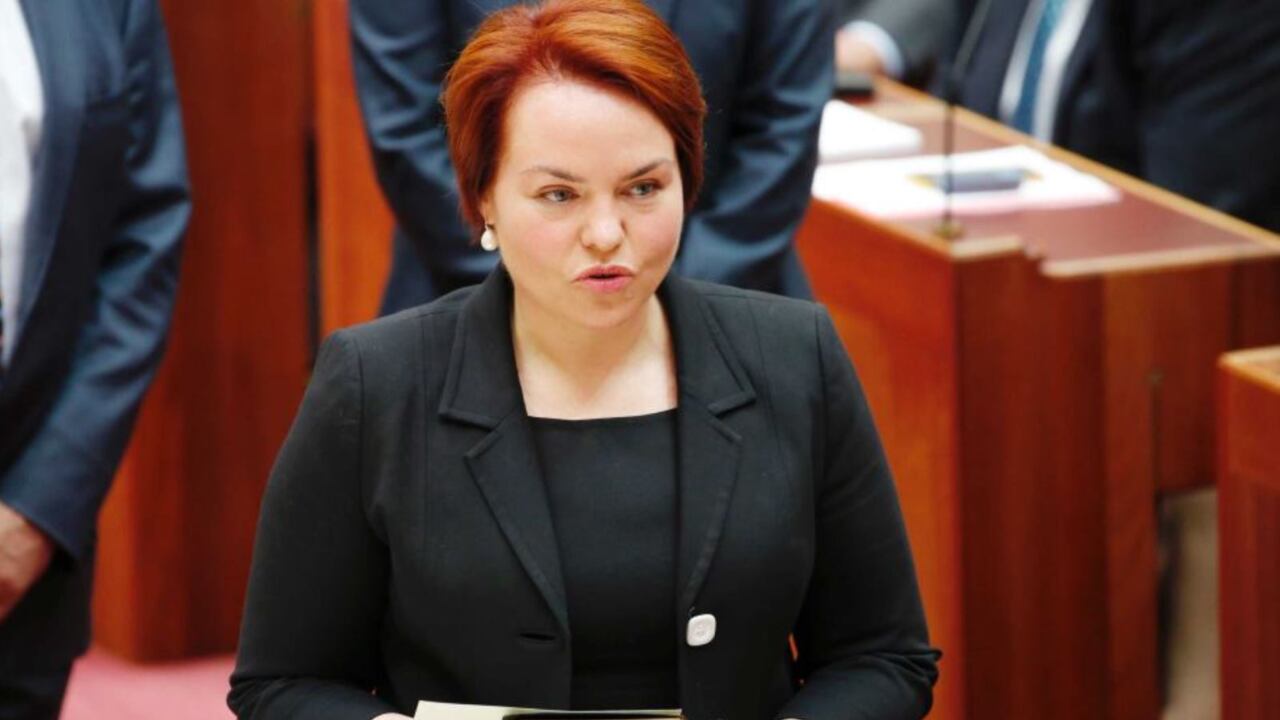
‘Mean girls’
With no knowledge of what had unfolded, Kitching was subsequently summoned to a meeting with Keneally.
She was accused of leaking to the Liberals and was read a series of accusations and charges. She was not permitted a right of reply. Nor was she given advance notice of what the meeting was about so she had no lawyer or support person present. She was offered no procedural fairness.
The result of the meeting was that Kitching was suspended from the Labor tactics committee - a senior group that meets daily to decide on question time political strategy.
She was never returned to it.
It is understood Kitching made her case to Labor’s Deputy Leader, Richard Marles, who said he would try to sort it out for her, but the situation was never resolved.
From this point, Kitching was given fewer opportunities to ask questions during Senate question time.
Kitching felt betrayed by Reynolds, who had been her friend, and went on the warpath, leading attacks against her.
“After that, Kimberley started very aggressively pursuing Linda with questions on notice, aggressive questions in question time,” a friend said. “Kimberley had to reprove her loyalty. She was under severe internal pressure and wanted to get revenge against Linda for having betrayed her.
“She was very stressed. She confided in me a number of times.”
The stress contributed to the health problems Kitching was already suffering.
“This is where the process of isolation and cruel treatment intensified. Kimberley was stressed, started losing weight and strength dramatically,” a second friend alleged.
A third friend also spoke about the devastation Kitching felt at being ostracised by Labor’s senior Senate leadership team.
Kitching and some of her supporters would refer to the three women - Gallagher, Keneally and Wong - as “the mean girls”.
Marles, Keneally and Reynolds all declined to respond to The Australian’s questions about this incident.
“This is a difficult time for many in the Labor family. Mr Marles, Senator Wong and Senator Keneally will not be engaging in commentary on baseless claims,” a Labor spokesperson said.
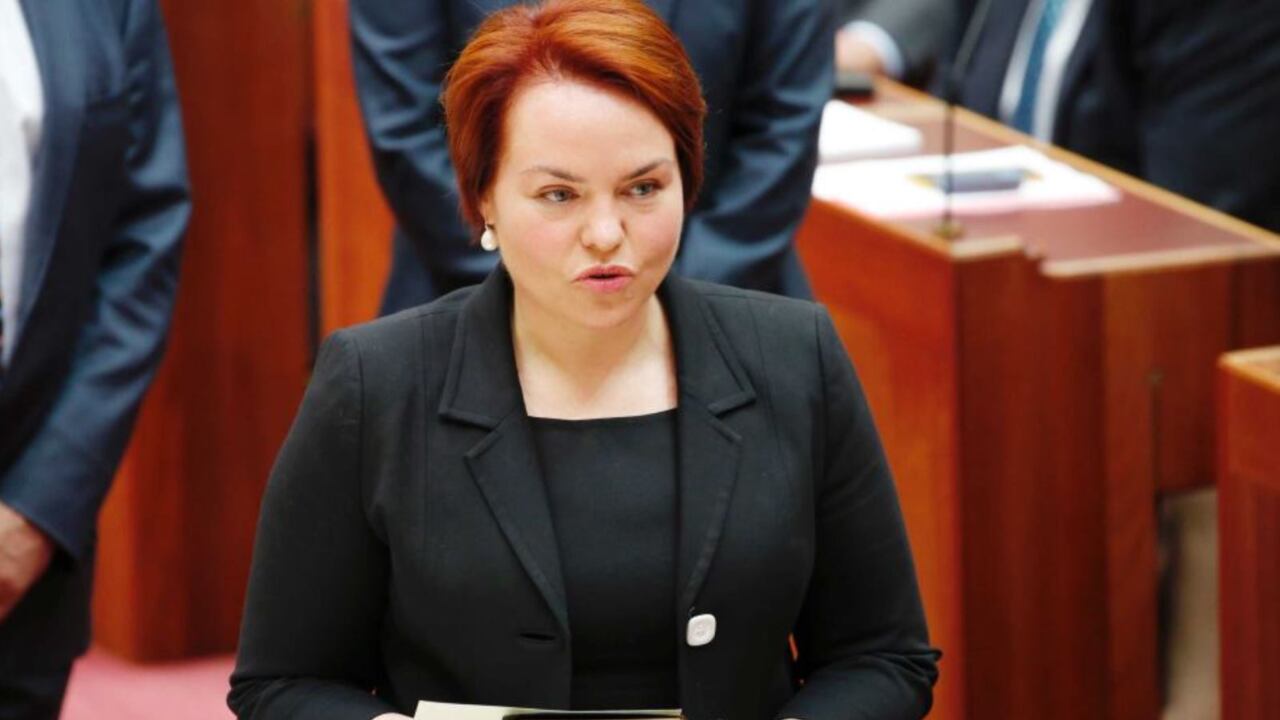
Sidelined
Kitching’s achievements were recognised when she won the Sergei Magnitsky Human Rights Award in November 2021 in London.
She asked the Labor Party to fund an economy flight to London for her to accept the award, noting the funds were largely untouched because of Covid restrictions, but Marles refused.
She paid her own way there.
Despite the international recognition, inside the Labor Party there was little praise and no accolades.
Kitching was a successful parliamentary performer in her role as assistant spokeswoman for government accountability.
It was in this position that she exposed former Australia Post boss Christine Holgate’s gift of Cartier watches to executives.
Yet Anthony Albanese demoted her from this role in his January 2021 reshuffle, replacing her with Keneally.
It is understood Kitching learnt about her demotion only from media reports.
Despite her treatment within Labor, Kitching continued to make her mark, most recently when she questioned ASIO boss Mike Burgess about whether it was Chau Chak Wing who had been involved in a foiled foreign interference plot.
Even this didn’t go down well inside the Labor Party.
There was an article in the left-wing Saturday Paper by journalist Karen Middleton that claimed “Kitching’s senior Labor colleagues were furious with her intervention and some even noted privately that her own preselection had not yet been confirmed”.
Kitching commented on the article to a colleague: “This is very bad news. Karen (Middleton) was Albo’s biographer so this is likely to be well-sourced.”
Victorian Right faction organiser Stephen Conroy denies Kitching would have been dumped and points out there were no rival candidates for her Senate position.
But there’s little doubt on the eve of her death, Kitching was concerned about her political future.
She had been ostracised from the party she had always loved.
More Coverage
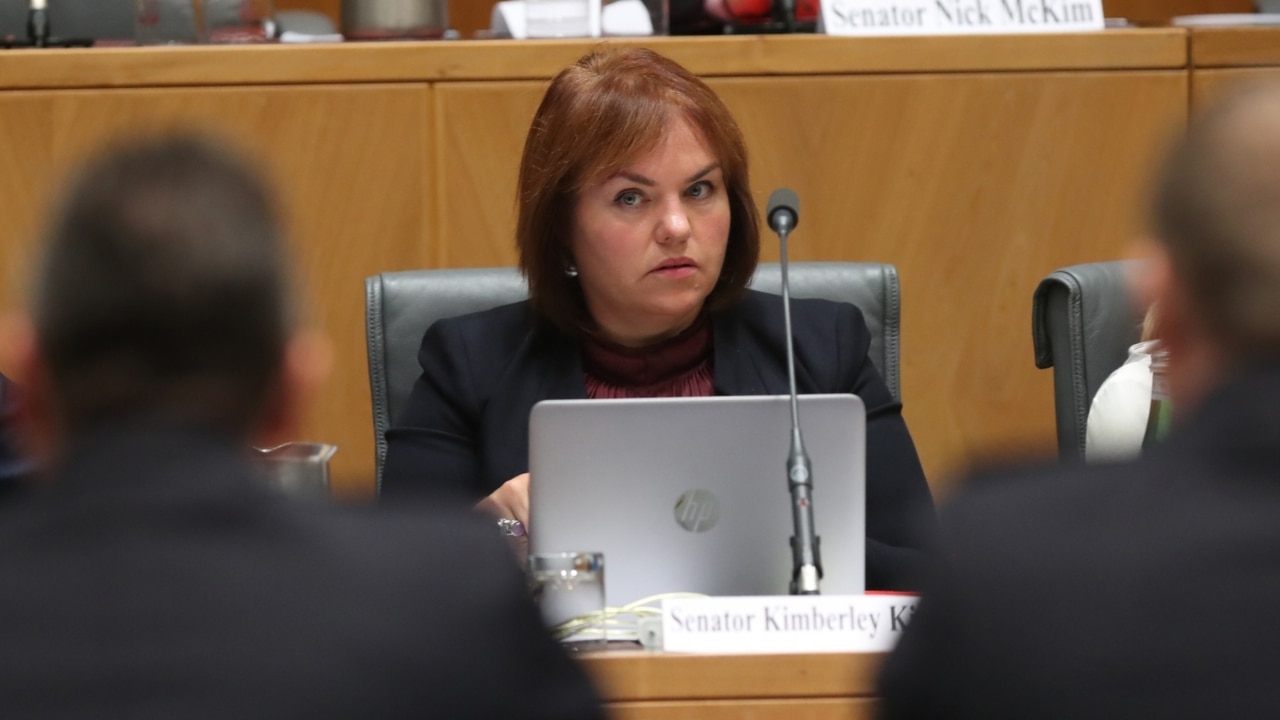



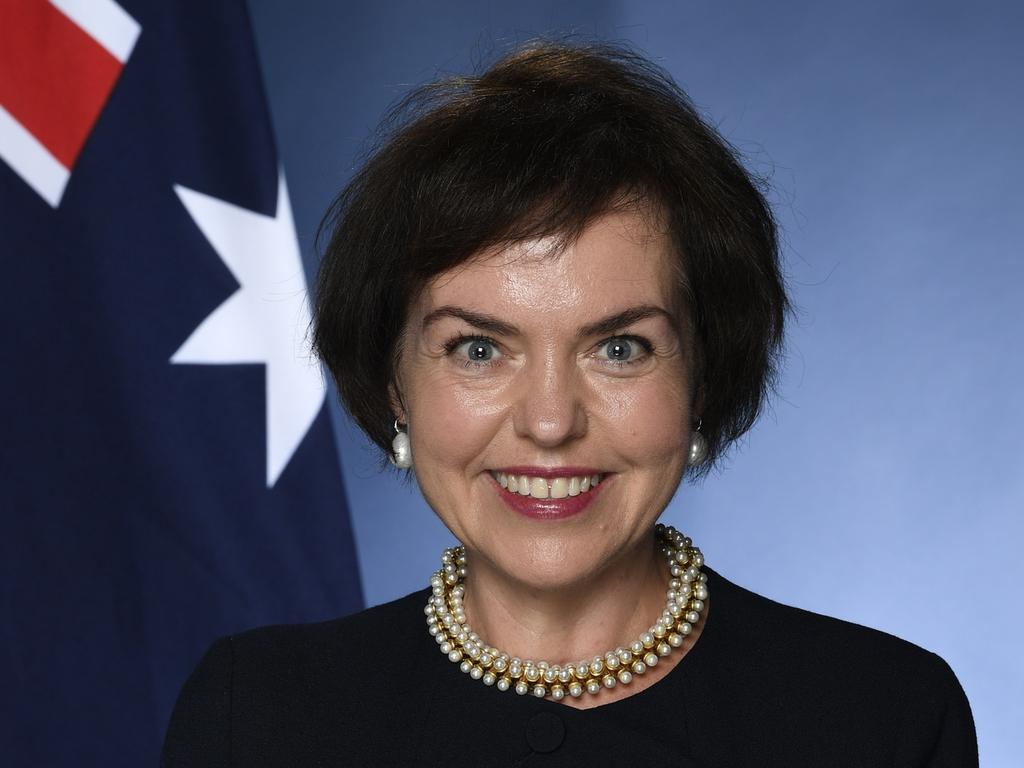
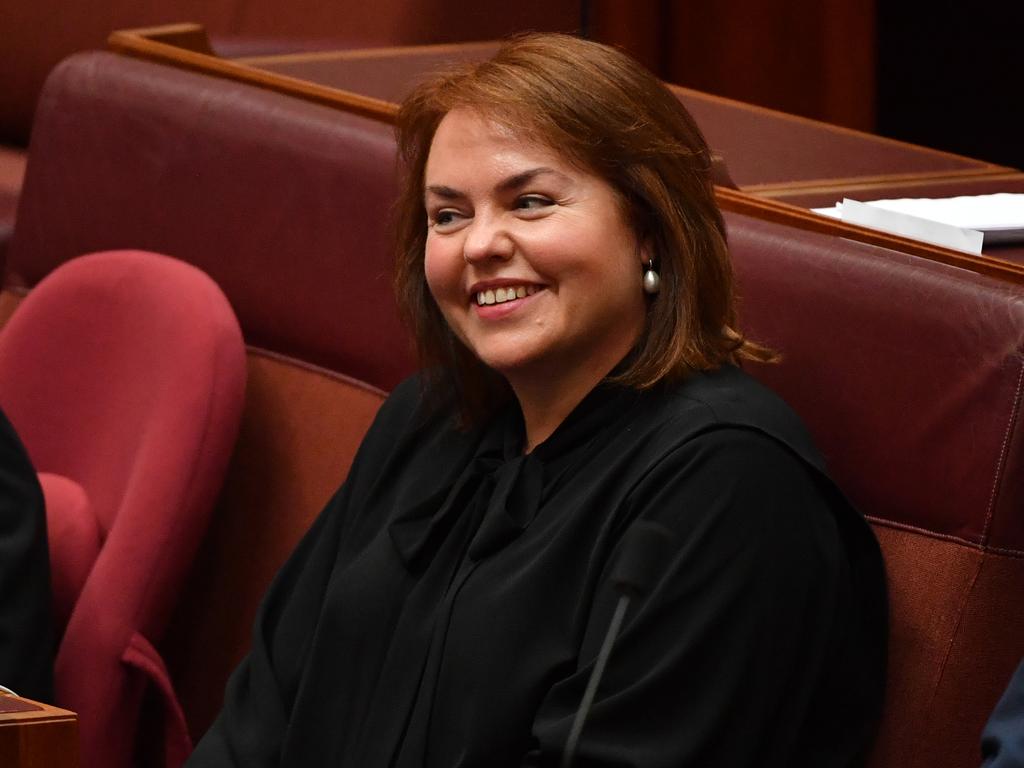

To join the conversation, please log in. Don't have an account? Register
Join the conversation, you are commenting as Logout